Search Results
Showing results 641 to 660 of 730
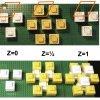
Exploring the Nanoworld with LEGO Bricks: Structures at the Nanoscale
Source Institutions
In this activity (pages 7-16), learners model various crystal structures with LEGOs. This activity also contains additional links that explain how to create other crystal structures.
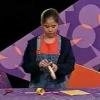
Hoop Glider
Source Institutions
In this activity, learners engineer a flying glider using paper hoops and a drinking straw.
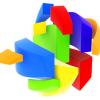
Crazy Shapes
Source Institutions
In this activity, learners cut a shape into two equal sized pieces and use their knowledge of geometry and space to prove that the two parts are equal.
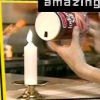
Amazing Air
Source Institutions
In this activity, learners construct a small "air cannon," and use its airflow to put out a candle (lit with the help of an adult).
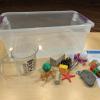
Sink or Float
Source Institutions
In this activity, learners will make predictions and experiment with different objects to see if they sink or float.

From Farm to Table
Source Institutions
In this activity, learners imagine the path their food takes from planting a seed, all the way to sitting on their kitchen counters. Explore concepts for each step food takes to reach your home.
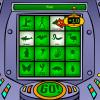
A Touch of Class
Source Institutions
In this online game, learners test their skills of categorization.
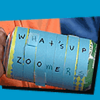
Scytale Messages
Source Institutions
In this activity, learners use a soda can to decode a secret message. Learners wrap scytale (pronounced ski-tally) code around a can and challenge friends to see if they can crack the codes.

Mountain Rescue Mission
Source Institutions
In this math activity, learners play a game that helps reinforce learners' understanding of the coordinate system.
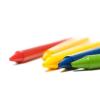
Spinning Your (Color) Wheels
Source Institutions
In this optics activity, learners use everyday materials to make a color wheel. When learners spin the wheel like a top, they will be surprised to see all the colors mixing together to appear white.
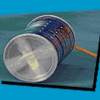
Spool Racer
Source Institutions
In this physics activity, challenge learners to make a rubber band-powered spool racer. Demonstrate principles of motion as well as potential and kinetic energy.

Subtracta's Dog
Source Institutions
In this math activity related to volume, learners use problem solving skills to calculate and build a model house for Minus the dog.

Snake
Source Institutions
In this physics activity (page 4 of the PDF), learners will construct their own spiral "snake" and use it to explore the relationship between heat and kinetic energy.
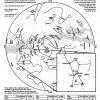
Supernova Star Maps
Source Institutions
This fun astronomy activity allows learners to experience finding stars in the night sky that will eventually go supernova. This activity is perfect for a star party outdoors.
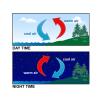
Turning the Air Upside Down: Spinning Snakes
Learners color and cut out a spiral-shaped snake. When they hang their snake over a radiator, the snake spins.
PomPom Toss
Source Institutions
In this activity, learners play a game that helps young mathematicians recognize how the numbers 0 through 5 are related. Learners toss five pompoms into circle made out of string on the floor.

Toss a Score!
Source Institutions
In this math game, learners toss plastic cups to land just right and collect points to win.

Can Car
Source Institutions
In this physics activity, challenge learners to make a race-car out of a coffee can and rubber band. Demonstrate motion, forces, kinetic and potential energy and friction.

Right Ear/Left Ear
Source Institutions
In this activity (4th on the page), learners conduct a series of tests to find out which of their ears is more dominant.
Pattern Families
Source Institutions
In this math activity, learners sort patterns into similar "families" or groups that have the same pattern, but different symbols.
